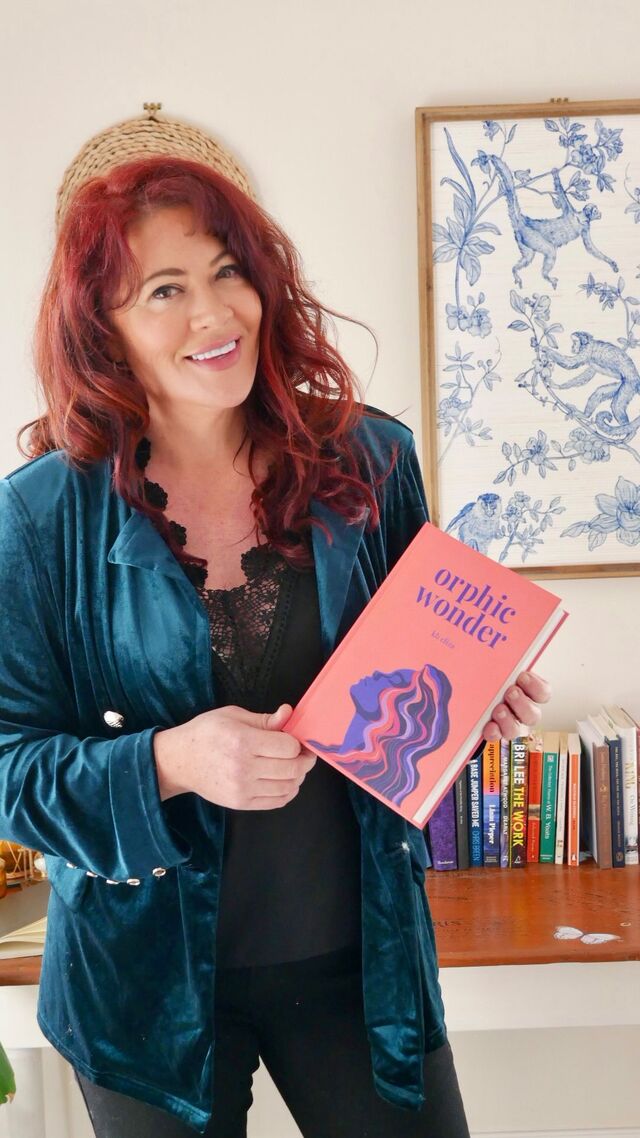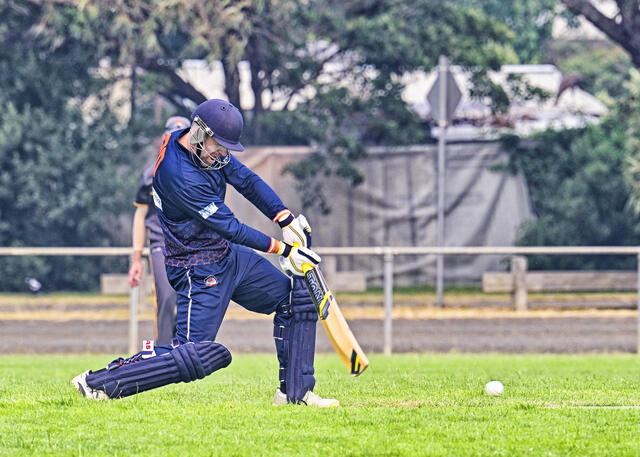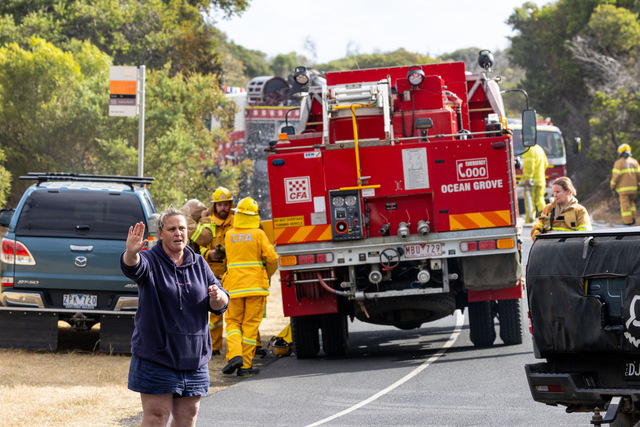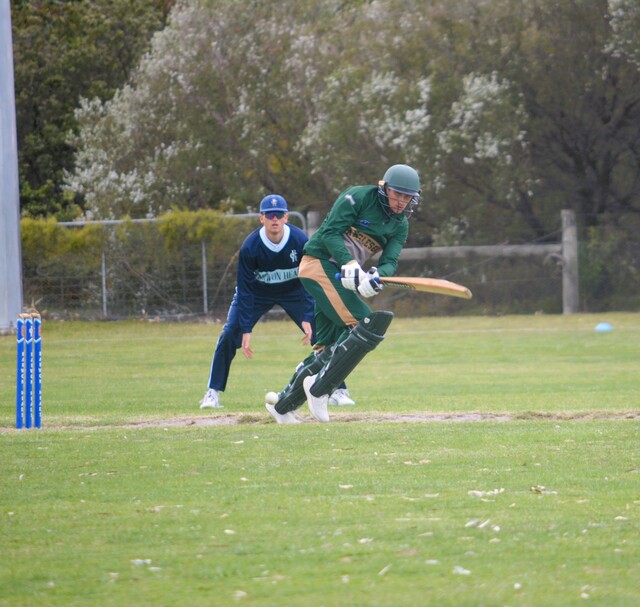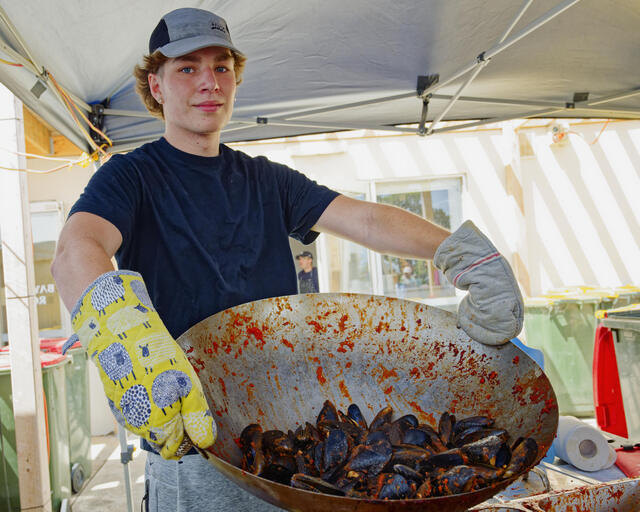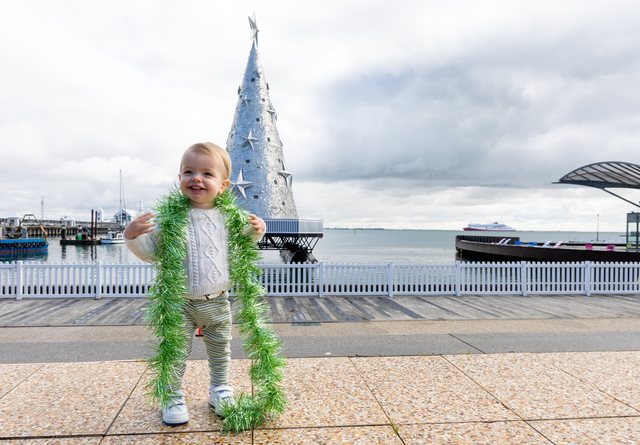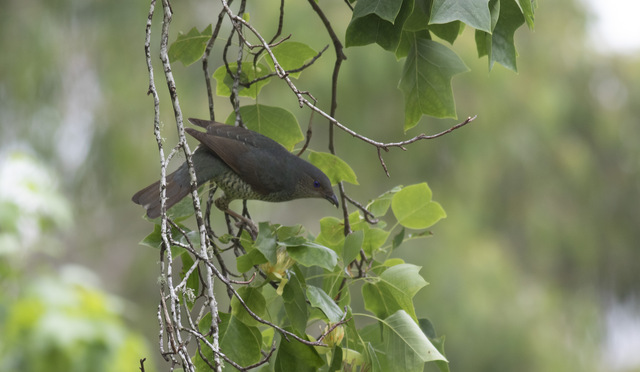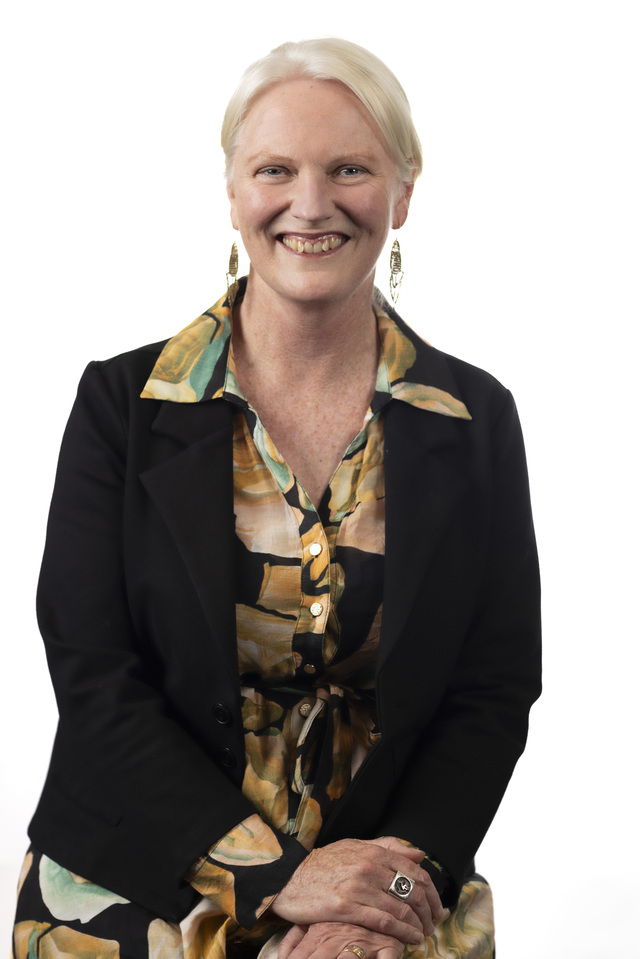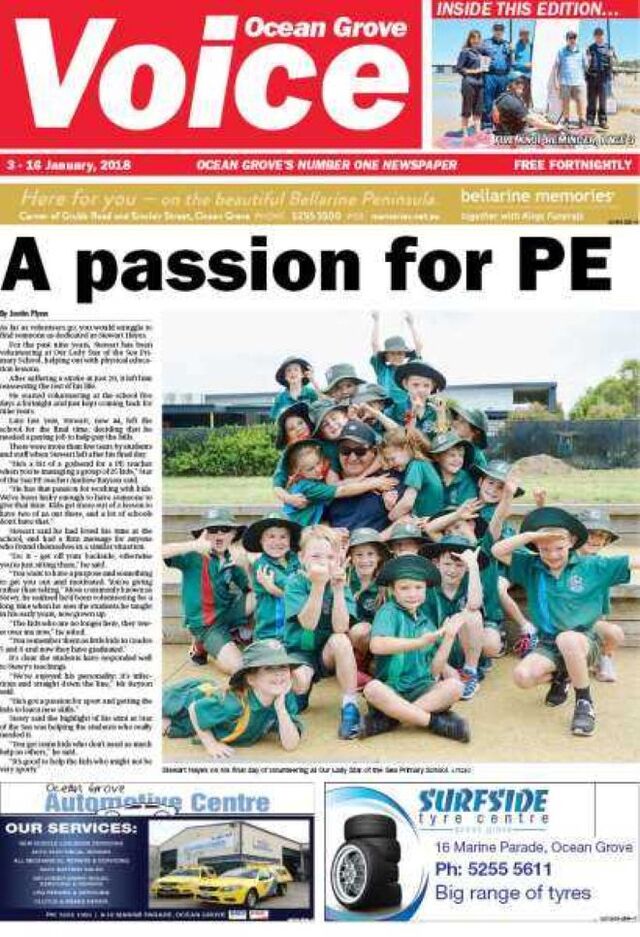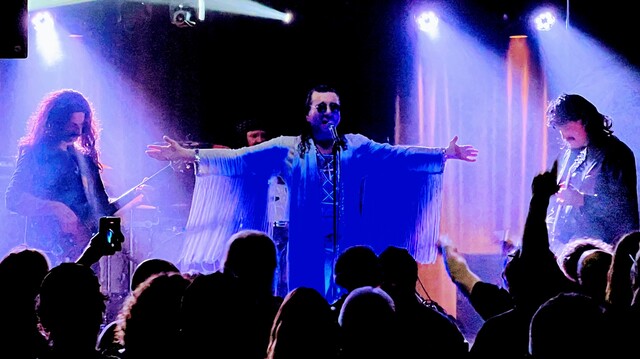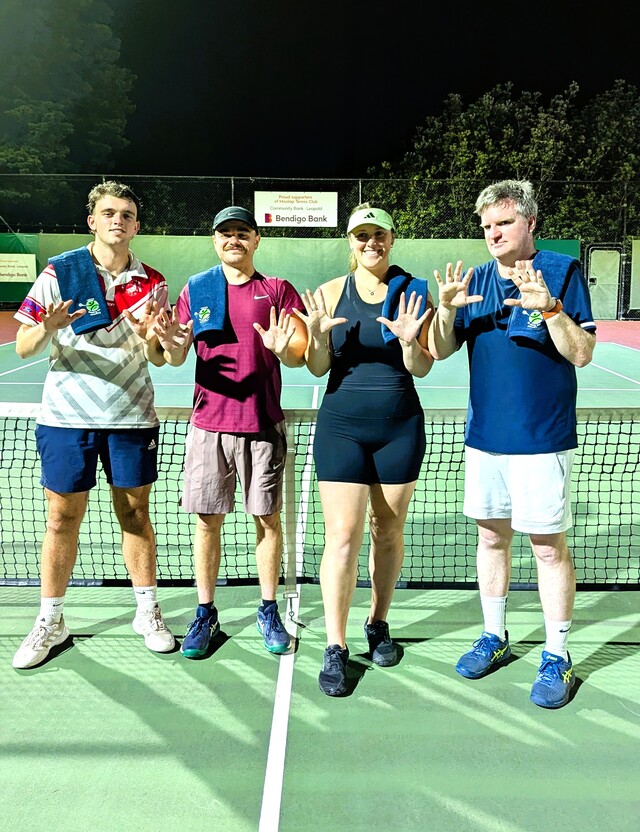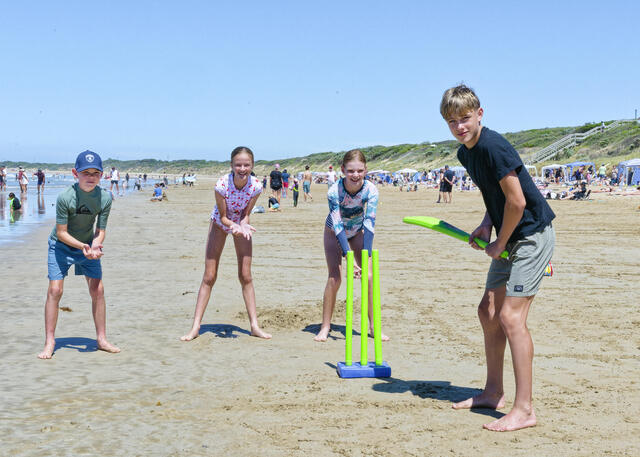Leopold’s Kirsten Macdonald recently won the international Literary Titan Book Award for her second poetry collection, Orphic Wonder. Jena Carr speaks with the poet and mother about her book and experience living with an acquired brain injury.
Kirsten Macdonald, 48, is a fun-loving mother and poet, but what many people may not see is a person living with an acquired brain injury.
In 2012, the Leopold woman underwent a craniotomy, which is the surgical removal of part of the skull, to treat a life-threatening aneurysm (abnormal swelling or bulge in a blood vessel wall) in her brain.
“I remember going in that morning and laying on the gurney and one of them were testing out the medical equipment and they started up the saw,” she said.
“It hadn’t occurred to me until that moment that I was actually going to have my head cut open. All I wanted to do was jump out of that bed… It was like a horror movie to think of somebody doing that.
“Despite all that, I came out of surgery okay. There are some people that go in and have these types of surgeries that come out as a completely different person or don’t come out at all.”
Following the surgery, Kirsten had to go through intensive rehabilitation to learn to walk again and adapt to a world without her sight.
“I do have a weird way of looking at things. I remember thinking, ‘I’ve never been blind before. This will be interesting’ and I decided to go with it and see what happens,” she said.
“I had to learn how to make a coffee in the morning without burning myself, make my kids breakfast, and feel my way around.
“Within about five days, my hearing became almost bionic. It doesn’t happen to everyone that’s blind, but it can happen.
“I could hear a conversation down the other end of the ward. My husband took me for a walk one day around the block on my little walker, and I heard a mouse.
“I felt like Spiderman with these spidey senses, so no one could creep up on you and it was fascinating as it took away all the visual information.”
Kirsten’s vision would return suddenly about five months later, but her challenges were not over when a second aneurysm was discovered in 2015.
“The idea of not seeing my kids smile was really hard and it was amazing that I got to see that again. My life’s never going to be the same again because it all feels different,” she said.
“I craved colour. I didn’t know you could crave colour, and I remember that when I got my vision back, I went for a walk to Ocean Grove beach and took in the sunrise.
“A couple of years later, I went in to do a regular scan, and this big aneurysm was there, which was inoperable.
“They gave me three days to decide what to do as doctors had this brand-new surgery that they could do. So, through your arteries, they could put a little stent up through your heart into your brain.
“It was very risky, but doctors said that if I didn’t do that, they didn’t expect me to make it to Christmas. I’ve got three kids, so that was a hard decision to make.
“The surgery went ahead, and I was home within a few days… but doctors came back and said that the surgery didn’t work and that there was nothing more they could do: go and enjoy (what time was left).
“They didn’t know how much time I had; it could be tomorrow or five years. That was in 2015, and I am still here. What’s happened since then is that the aneurysm started to stabilise a little bit.
“That doesn’t mean I have less of a chance of a rupture, but I’ve defied the odds before, and I’ve been very blessed.”
Ten years later, Kirsten has released two poetry collections under the pen name KB Eliza, with her second book, Orphic Wonder, receiving the international Literary Titan Book Award.
The award acknowledges writers who push the boundaries of language, expression and form, and Kirsten said she was shocked to be honoured in that way.
“There is an element of bravery to writing poetry, but it’s also powerful, as there could be somebody out there with whom it resonates and impacts in some way,” she said.
“What I love about it the most is how to express something in a way that’s not normally expressed and find the words to convey what the heart is feeling.
“When the first book came out, I didn’t tell anybody about it. Only three or four people knew that I was doing it, and I just loved the concept of being anonymous.”
Kirsten said that one of the hardest poems to write, which is featured in her latest book, was called ‘The Postman is a Stranger’ and detailed the value people held in beauty.
“Before I went into surgery, I was a size eight with really long red hair, but afterwards, I was on different medications and stuff like that, and I was blind, so I couldn’t see myself,” she said.
“The next time I saw myself when my vision just turned on, I was about a size 16 with no hair, but my body was healing, which was the main thing.
“My postie came to the door one day, and when I answered the door, he asked, ‘Where’s Kirsten?’. I said, ‘It’s me’, and he was like, ‘Oh my God, what happened to you?’.
“I just remember feeling like someone had punched me, and it was interesting how many people were affected by what I looked like.
“That really opened my eyes to how much people value beauty, normal brains and all that stuff. It might sound silly, but in a lot of ways it was a blessing because I got to walk in all these different shoes.”
Kirsten said she has been very lucky as she has been able to see her three kids grow up, with one of them getting married and having kids of their own.
“We all carry a responsibility to make the world more accessible – but being neurodiverse or not fully able-bodied is not ‘less than’,” she said.
“Living with an acquired brain injury has since become a part of my neurodiverse journey, offering both profound challenges and unexpected insights.
“Extreme life events can crack open something in us. It’s scary, it’s uninvited, but it can also lead to profound transformation and deeper understanding.
“In my experience, people with neurodiverse minds and a different ability often offer refreshing, original perspectives that challenge the status quo in brilliant ways.
“What really seems to be resonating with readers, and has been reflected in the literary award, are themes around women’s lived experiences, neurodiversity, and challenging the beauty myth.
“These are the threads I’m most passionate about weaving through my work. I’d love to see the stigma around neurodiversity and disability softened, if not erased altogether.”

